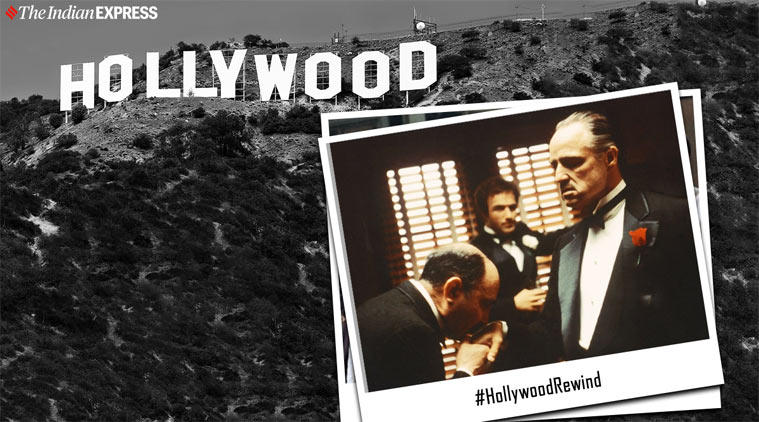 The Godfather released in 1972 and was one of the biggest box office successes of its time.
The Godfather released in 1972 and was one of the biggest box office successes of its time.
The room is dimly lit, almost to the point of near darkness. On a grand chair is seated a man, but for now, we only see his silhouette. What we hear and see instead is a short Italian man speaking in woeful fashion about his daughter’s tragedy. She has been brutally assaulted, her nose broken. Men attempted to rape her even as she asked for mercy. These horrific details are spoken slowly by this man called Wilson. Wilson is in pain, he is offered wine by his host. The police have let go of the perpetrators and he has come to the Don for help. Don Vito Corleone.
In this seven minute opening sequence, we get many details about the 1972 Francis Ford Coppola directorial. That, of course, we are dealing with a mafia movie, but the kind that will not exaggerate these men’s actions even as they play god, taking and sparing lives at will. What is further established is that the performances will be exquisite. Marlon Brando as Don doesn’t do much in this aforementioned scene. He doesn’t raise his voice, but listens intently to Wilson and only offers his response using a few words. These gestures and words speak of Don Corleone’s insecurities, but also of his immense power, and the consequent narcissism, which is usually a by-product of such power. He is almost hurt that Wilson comes to him for aid when it is convenient to him, and even then, he doesn’t, “call me godfather,” the Don complains. He feels he has been disrespected and that if Wilson had come to him in the spirit of friendship, he would have not bat an eyelid to “take care of the scum.” It is an act that holds your attention and warns you of the bloodshed and battles ahead. It is an uncompromising, quietly chilling opening scene, whose likeness would be hard to find.
When the first page of the book is so good, you are only eager to devour the rest of its content as quickly as possible. And The Godfather didn’t disappoint. It maintained this level of excellence for almost the entire duration of the film. The camera angles, the narrative (based on Mario Puzo’s bestselling novel of the same name), the performances, the editing, the score — at no point were these varied departments of filmmaking inharmonious. Like a lovely orchestra group, each unit of cinema supported the other, thereby finally giving us this masterclass of a film.
While, among the actors, Brando’s role is more enigmatic and worthy of the spotlight, it is Al Pacino’s act as the reluctant mafia member, Michael Corleone, that won me over. Not only because it was such a well-fleshed out character, but also because of Pacino’s impressive acting. Superb doesn’t even cut it. His transition from a somewhat shy, determined man to a don is a visual treat. Each silence measured, and every yell accounted for. We have already discussed the remarkable opening sequence, but let us now talk of the ending. Diane Keaton’s Kay Adams is worried that Michael is no longer the man she married, that he is changing. She asks him about the recent killings, twice. At first, Michael asks her not to intervene in his ‘business.’ But when she doesn’t drop the subject, Michael shouts at her. ‘The learned, silent Michael who knew better, how could he?’ But Kay cannot help it now, the shift has already happened. It is too late to go back. Michael is corrupted. He cannot be saved. And the door closes on Kay as her husband, the new Don, is greeted by visitors who bow down to kiss his hand as a sign of respect. It is this transformation that grounds Pacino’s act as the reluctant but capable boss. His transition is not drastic if you pay attention, if you watch the actor closely. Even within this limited time frame, Pacino does a spell on you as he slowly but surely changes on screen. A marvelous achievement.
You can watch The Godfather on YouTube and Amazon Prime Video.